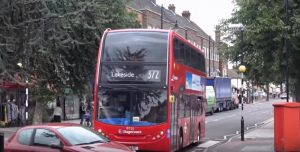
The Guardian / UK: The ban on parents taking their children out of school for family holidays during term time has been upheld by the supreme court.
In a unanimous decision, the justices upheld a fine imposed on a father for taking his daughter out of school for an unauthorised seven-day break in April 2015.
The dispute between Jon Platt and his local education authority, Isle of Wight council, has been watched carefully by teachers and parents across the UK. Platt successfully challenged the council’s original £60 fine last year.
Delivering the judgment, the deputy president of the supreme court, Lady Hale, said: “Unauthorised absences have a disruptive effect, not only on the education of the individual child but also on the work of other pupils.
“If one pupil can be taken out whenever it suits the parent, then so can others. … Any educational system expects people to keep the rules. Not to do so is unfair to those obedient parents who do keep the rules, whatever the costs or inconvenience to themselves.”
At issue was the meaning of the words “fails to attend regularly” in section 444(1) of the Education Act 1996. The court ruled that “regularly” did not mean “evenly spaced” or “sufficiently often” but instead “in accordance with the attendance rules”.
Regulations introduced in 2013 curtailed the ability of headteachers at state schools in England to grant up to two weeks’ term-time holiday for pupils with good attendance.
That led to a surge in fines for unauthorised absences imposed on parents by local authorities, and complaints from families seeking to avoid the higher cost of school holiday travel.
The appeal by the Isle of Wight council was heard by five justices at the supreme court in January this year. Platt has refused to pay the fine. The case against him will now be returned to the local magistrates court, where his plea of having no case to answer will be rejected.
His lawyers had argued that there was no case to answer since Platt’s daughter had attended school regularly. The school register recorded her attendance at 92.3%.
Speaking outside the supreme court after the judgment, Platt said that he would fight against paying the penalty notice when the case returns to the magistrates court.
The ruling meant that parents will no longer be the final arbiter of what is right for their children, he said. “You can no longer decide to take your children out of school without the permission of the state,” he added.
“The case has to go back to the Isle of Wight magistrates. I have no intention of pleading guilty to this offence.”
Platt said the supreme court had not only overturned earlier decisions in his case but also landmark ruling made by the high court in 1969 and 2006.
“The decisions of the high court judges in 1969 and 2006 informed [my] decision,” he explained. “I have just been told that I was wrong to rely on those decisions. … The consequences of this decision can only be described as shocking. Every unauthorised absence … is now a criminal offence.”
Platt urged parents to vote at the forthcoming local elections to unseat councillors who pursued a hard line in fining parents.
Hale said that the high court had “clearly been worried about the consequence that a single missed attendance without leave or unavoidable cause would lead to criminal liability. However, there are several answers to this concern.
“First, there are many examples where a very minor or trivial breach of the law can lead to criminal liability. It is an offence to steal a milk bottle, to drive at 31 mph where the limit is 30 or to fail to declare imported goods which are just over the permitted limit.
“The answer in such cases is a sensible prosecution policy. In some cases, of which this is one, this can involve the use of fixed-penalty notices, which recognise that a person should not have behaved in this way but spare him a criminal conviction.”




